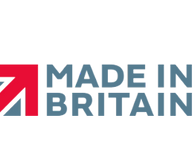Collagen
Collagen is the primary structural protein found in tendons, ligaments, and connective tissues, making it a particularly important supplement for tennis elbow. Over time, repetitive movements can degrade collagen fibres in the tendons, contributing to pain, inflammation, and reduced mobility. Taking a hydrolysed collagen supplement, especially one containing Type I and Type III collagen—may help repair microtears in tendon tissue and improve structural integrity. Studies also show that when collagen is taken alongside vitamin C, the body’s own production of collagen is further stimulated, leading to better recovery outcomes. For those dealing with chronic or recurring elbow pain, collagen supplementation offers a natural way to support tendon healing and resilience.
Hyaluronic Acid
Although most commonly associated with skin and joint hydration, hyaluronic acid also plays a crucial role in maintaining the elasticity and lubrication of tendons. For anyone suffering from tennis elbow, the repetitive stress placed on the elbow joint can reduce the natural levels of synovial fluid, leading to stiffness and discomfort. Supplementing with hyaluronic acid for elbow pain helps restore this fluid balance, improving joint movement and cushioning the surrounding tissues. It also supports the extracellular matrix, which is essential for tendon flexibility and durability. When combined with collagen or anti-inflammatory supplements, hyaluronic acid contributes to smoother, more pain-free movement in the elbow joint.
Glucosamine Chondroitin MSM Complex
The glucosamine-chondroitin-MSM combination is a cornerstone in joint health supplements for elbow pain. It supports cartilage regeneration, reduces inflammation, and improves mobility. This complex is especially helpful not just for conditions like osteoarthritis, but also for elbow pain caused by repetitive strain, such as golfer’s elbow or tennis elbow. By nourishing joint tissues and limiting degradation, it promotes long-term relief and structural support.
Turmeric Curcumin
Turmeric, particularly its active compound curcumin, is one of the most widely researched natural remedies for inflammation and joint pain. Curcumin inhibits multiple inflammatory pathways, including COX-2 and NF-kB, which are directly linked to the pain and swelling seen in tennis elbow. Taking a high-quality turmeric curcumin supplement for elbow joint pain, especially one that includes black pepper extract (piperine) for enhanced absorption, can significantly reduce tenderness and improve range of motion in the elbow joint. Regular use supports tendon healing, eases stiffness, and protects tissues from further inflammatory damage.
B-Complex Vitamins
The B-complex family, especially vitamins B6, B9 (folate), and B12, plays a vital role in nerve function, tissue repair, and energy metabolism, all of which are important when managing elbow pain. Vitamin B6 supports collagen cross-linking and modulates inflammation, while B12 is essential for maintaining healthy nerve endings and muscle coordination. A deficiency in these vitamins can exacerbate the symptoms of tennis elbow, particularly if nerve irritation or tingling is involved. By including a high-quality B-complex supplement in your support for tennis elbow, you can support the regeneration of soft tissue, reduce fatigue, and improve your body’s overall healing capacity.
Magnesium
Magnesium is a mineral that supports hundreds of enzymatic functions in the body, including those related to muscle relaxation, nerve conduction, and inflammation control. For people with tennis elbow, magnesium may help ease tightness in the forearm muscles, reduce cramping, and support tendon recovery. This is also a key supplement for elbow pain as it plays a role in regulating the stress response, which can influence the perception of pain. Magnesium deficiency is surprisingly common and may hinder your body’s ability to heal effectively. Taking a well-absorbed form of magnesium, such as magnesium glycinate or citrate, can help relax the affected muscles, reduce discomfort, and promote restful sleep, all of which contribute to a faster and more complete recovery from elbow pain.
Ashwagandha
Ashwagandha supplements are well-known for their adaptogenic properties (helping to balance the adrenal glands and production of the "stress hormone" cortisol), but they make valuable supplements for pain-relieving effects, including elbow joint pain. They help prevent pain signals from travelling along the nervous system and reduce markers of inflammation in the body. For individuals suffering from elbow pain or tennis elbow, ashwagandha can support joint mobility and limit the progression of tendon degradation, which is often linked to chronic strain injuries.
Omega-3 Fish Oil
Omega-3 fatty acids found in fish oil, especially EPA and DHA, are powerful natural anti-inflammatories. These compounds interrupt the production of inflammatory cytokines, reducing pain and stiffness in affected joints. For people with tennis elbow, omega-3 supplements can reduce swelling in the forearm tendons and aid in recovery from repetitive stress injuries.
Iron
Often overlooked, iron plays a vital role in muscle and joint health. Iron deficiency can lead to fatigue, muscular weakness, and even joint pain—especially in the limbs. For those managing chronic elbow pain, ensuring adequate iron intake helps the body produce myoglobin, a protein that supplies oxygen to working muscles and supports active healing.
Final Thoughts on Supplements for Tennis Elbow Pain
Whether you’re managing a sports injury or chronic repetitive strain, tennis elbow doesn’t have to take control of your life. Alongside rest, stretching, and targeted physiotherapy, the right supplements for elbow pain can make a real difference. Nutrients like omega-3s, curcumin, and glucosamine help calm inflammation, rebuild joint tissues, and support overall recovery. Before starting any supplement routine, speak to your GP, especially if you're taking medication or have underlying health conditions. But when used thoughtfully, these natural supports can help you get back to doing what you love, pain free.
If you're shopping for supplements to support other health conditions, too, take a look at our special collections focused on specific health goals. You can also look out for a bargain by browsing our supplement combos and bundles page, full of special discounts when you buy more than one supplement.
Don’t forget that supplements are a support for your body’s natural processes, not a replacement for medical diagnosis and treatment, so please visit your GP for help with any new medical condition. Also, remember that food supplements are a support to a balanced and healthy diet and lifestyle, not a replacement for healthy heating!







